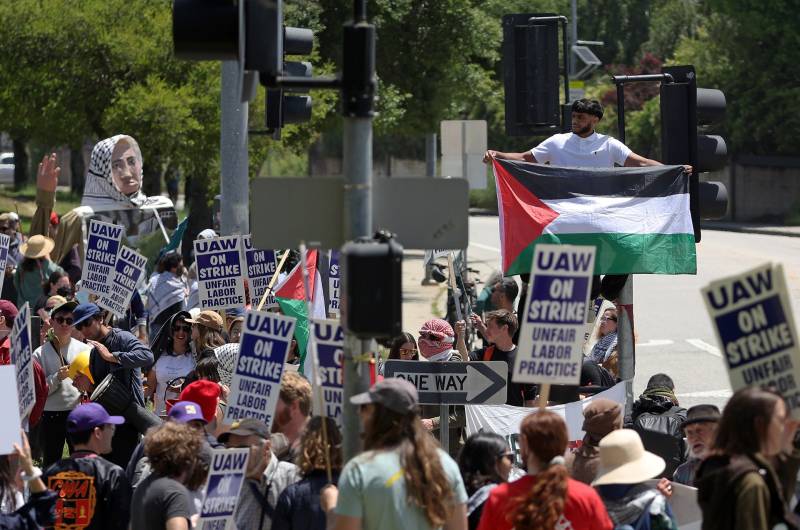Community members were unable to leave campus to pick up their children, access medical care off campus, show up to off-campus jobs, leave campus after an early morning shift or come onto campus for an afternoon or evening shift, Larive said in an earlier statement Tuesday evening.
Hindery pushed back on those claims.
“We understand that blocking the road might be seen as not peaceful, but we had a plan to allow emergency access,” he said. “We were allowing families that lived on campus to get their kids. We were dealing with these issues.”
Larive also wrote that the university could not meet protesters’ demands to end its ties to organizations that “support our Jewish students” and to funders that support “important student success work and happen to be Jewish organizations,” nor to condemn the use of funding from certain federal agencies.
“Functionally, the encampment wanted to prevent our researchers from pursuing research related to topics with which they disagree,” Larive said, calling it a “dangerous precedent and to give in to it would undermine academic freedom.”
Meanwhile, the executive board of the United Auto Workers Local 4811, representing 48,000 academic workers across the UC system, called on UC Santa Barbara, UC San Diego and UC Irvine to join in solidarity strikes next week. Graduate teaching assistants, researchers and others will walk out at Santa Barbara and San Diego on Monday and Irvine on Wednesday, joining those at UC Santa Cruz, UCLA and UC Davis.
UAW 4811 has staged rolling strikes across the UC system since mid-May, protesting the use of police against what the union said were largely peaceful pro-Palestinian protests at UCLA, UC Irvine, and UC San Diego while also threatening the free speech rights and academic freedom of UC employees.
“For the last month, UC has used and condoned violence against workers and students peacefully protesting on campus for peace and freedom in Palestine,” UAW 4811 President Rafael Jaime said in a statement. “Rather than put their energies into resolution, UC is attempting to halt the strike through legal procedures. They have not been successful, and this strike will roll on.”
The state labor board is now reviewing a complaint by the UC system alleging that UAW 4811’s strikes violate a no-strike clause in its contract. The California Public Employment Relations Board is expected to make a decision next week, according to a spokesperson.

